U.S. Department of Energy extends $2.5 billion loan for Ultium Cells projects in Lansing, Ohio and Tennessee
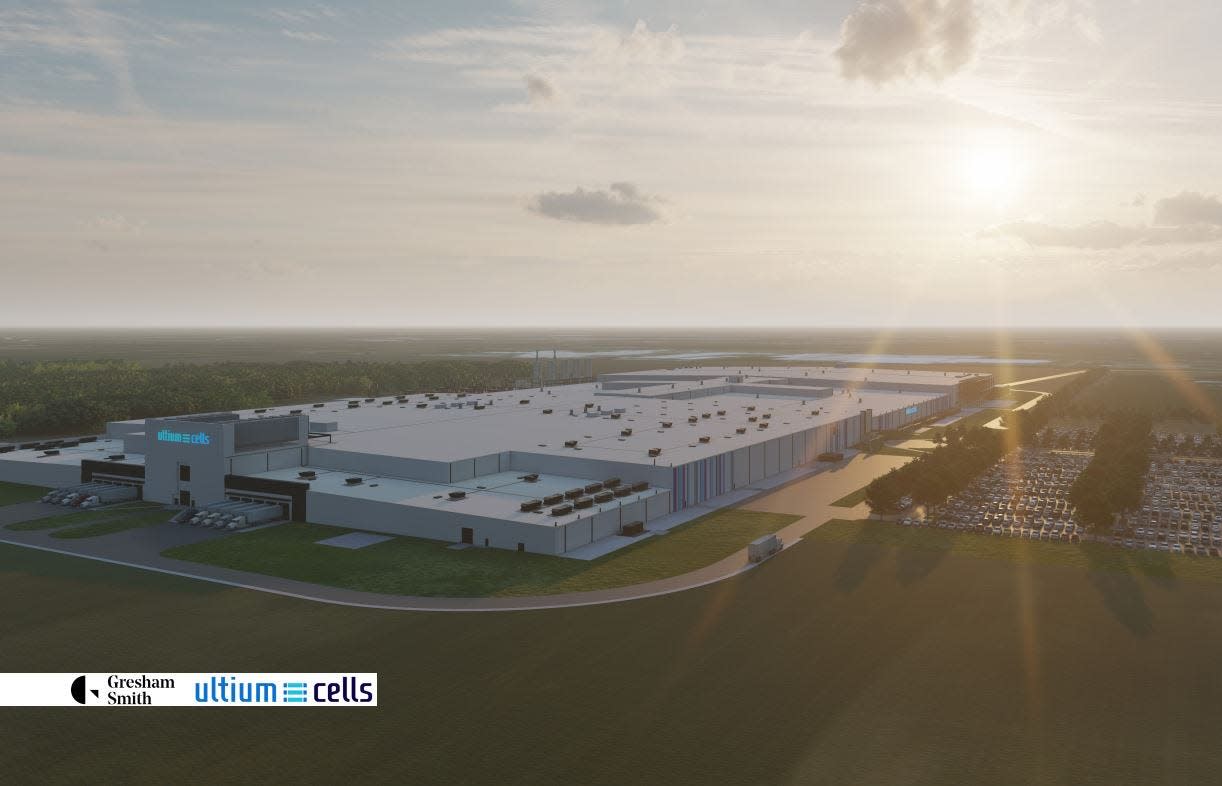
- Oops!Something went wrong.Please try again later.
- Oops!Something went wrong.Please try again later.
LANSING – The U.S. Department of Energy has closed a $2.5 billion loan that will help finance the construction of Ultium Cells LLC battery cell manufacturing facilities, including one in the Lansing area that is expected to employ more than 1,700 workers.
The U.S. Department of Energy announced Monday that the loan was finalized through its Loan Programs Office to finance the construction of Ultium Cells facilities in Michigan, Ohio and Tennessee, according to the federal agency's press release.
An unspecified amount of that loan funding will be awarded to a future $2.6 billion Ultium Cells plant being constructed in Delta Township.
The Ultium Cells company, which is a joint venture between General Motors Co. and LG Energy Solutions Michigan Inc., broke ground on the project in May and has started steel construction at the site. Upon completion, it is expected to span 2.8 million square feet and employ about 1,700 workers in high-tech jobs.
Construction of the facility includes an additional 2,000 construction jobs, according to the press release. Officials expect to complete construction and start production in late 2024.
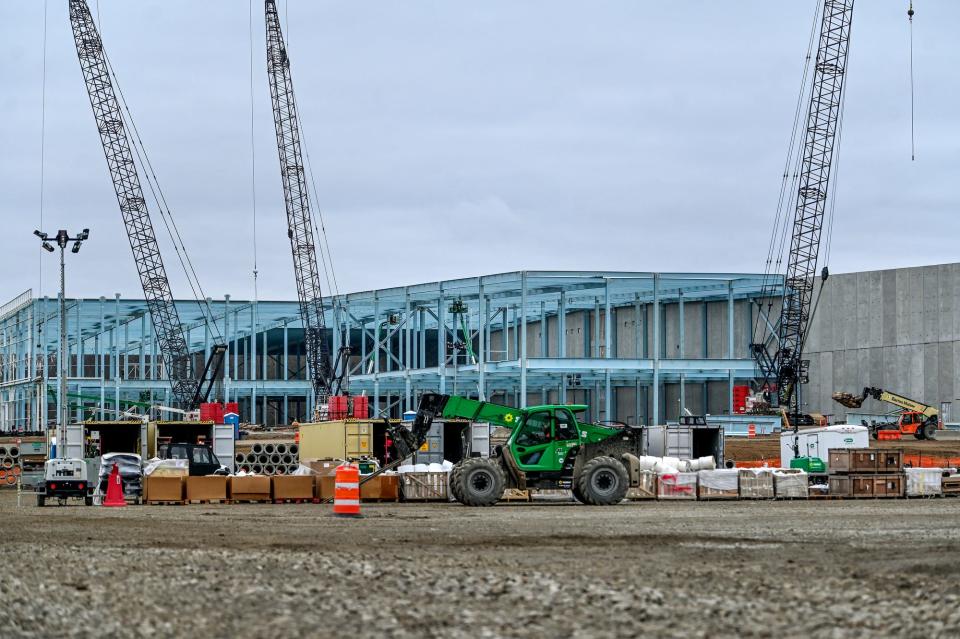
The battery cells produced at the plant will be used primarily in Chevrolet’s line of electric vehicles, including the Silverado EV and the GMC Sierra EV.
The Department of Energy's $2.5 billion loan is part of President Joe Biden’s American Battery Materials Initiative announced in October alongside $2.8 billion in Department of Energy grants to build out the supply chain for battery minerals and material supplies, according to the press release.
This loan closing supports Biden’s goal to reach net zero emissions by 2050 and electric vehicles making up half of all new vehicle sales by 2030. GM is working to eliminate all tailpipe emissions from its light-duty vehicles by 2035, in addition to its goal to build one million electric vehicles in North America by the end of 2025 and making its global products and operations carbon neutral by 2040, according to the press release.
“This loan will jumpstart the domestic battery cell production needed to reduce our reliance on other countries to meet increased demand and support President Biden’s goals of widespread EV adoption and cutting carbon pollution produced by gas-powered vehicles," said U.S. Secretary of Energy Jennifer Granholm, a former Michigan governor, in a statement.
Granholm in remarks Monday at the Automotive Hall of Fame in Dearborn said by 2030 there will be 10 battery factories operating in the U.S., heralding the development as a "new chapter for this country's industrial legacy" and "terrific news for the future of workers in America."
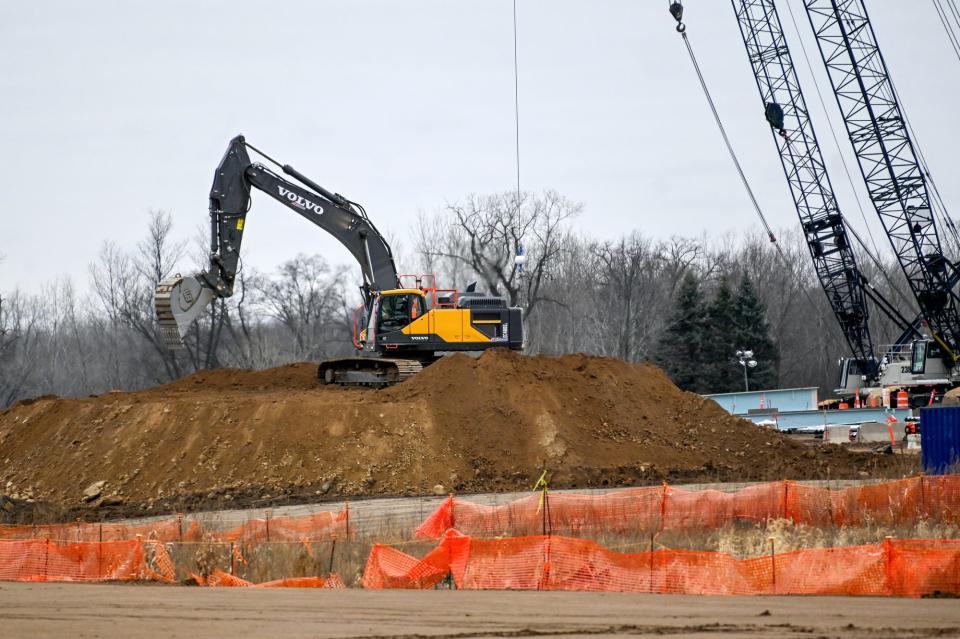
At the event announcing the initiative, Granholm was joined by U.S. Department of Labor Deputy Secretary Julie Su, Michigan's Democratic U.S. Senators Debbie Stabenow and Gary Peters, United Auto Workers President Ray Curry, Alliance for Automotive Innovation President and CEO John Bozzella and Ultium Vice President of Operations Tom Gallagher.
Gov. Gretchen Whitmer was unable to attend the event. Michigan's Chief Infrastructure Officer Zach Kolodin attended a roundtable discussion portion of the event in her place aimed at securing high-quality jobs in the budding battery industry.
"This is a vision that has been put together to make sure that we are bringing jobs home and investing in America in good-paying jobs," Stabenow said during a news briefing.
Whitmer in a statement praised the loan as an investment in the state's manufacturing sector.
"As the state that put the world on wheels, high-tech manufacturing is part of both our past and our future. That’s why we’ve been working hard to outcompete other states for every job and every dollar of investment, so everyone knows Michigan is the place to do business," she said in a statement Monday. "Investing in our workers will help us bring supply chains home and ensure that Michigan is the best place to innovate, design, test, and manufacture the technology of the future."
Detroit Free Press reporter Clara Hendrickson contributed. Contact Mark Johnson at majohnson2@lsj.com. Follow him on Twitter at @ByMarkJohnson.
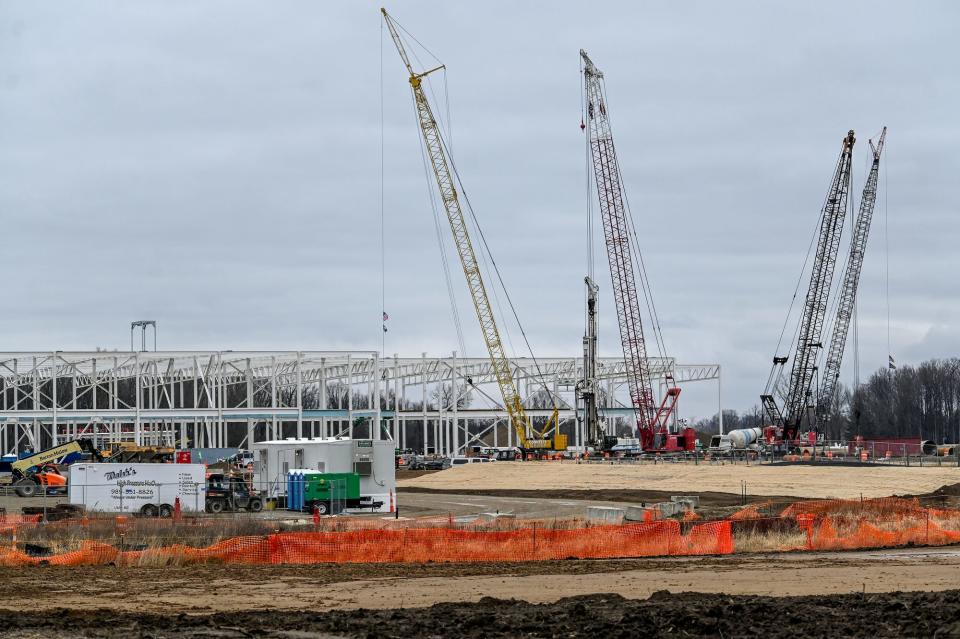
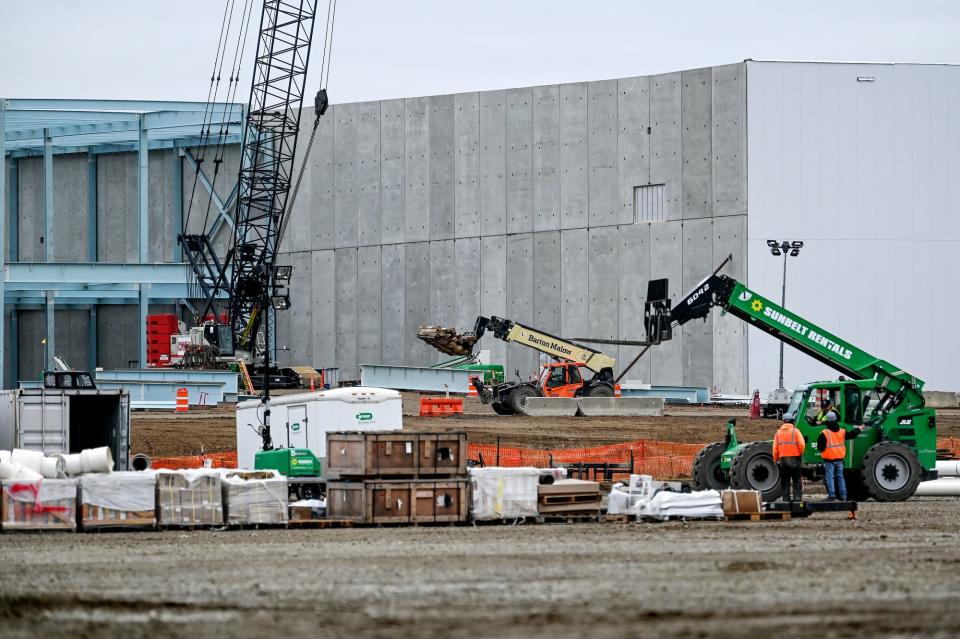
This article originally appeared on Lansing State Journal: Ultium Cells project in Delta Township part of $2.5 billion federal loan

